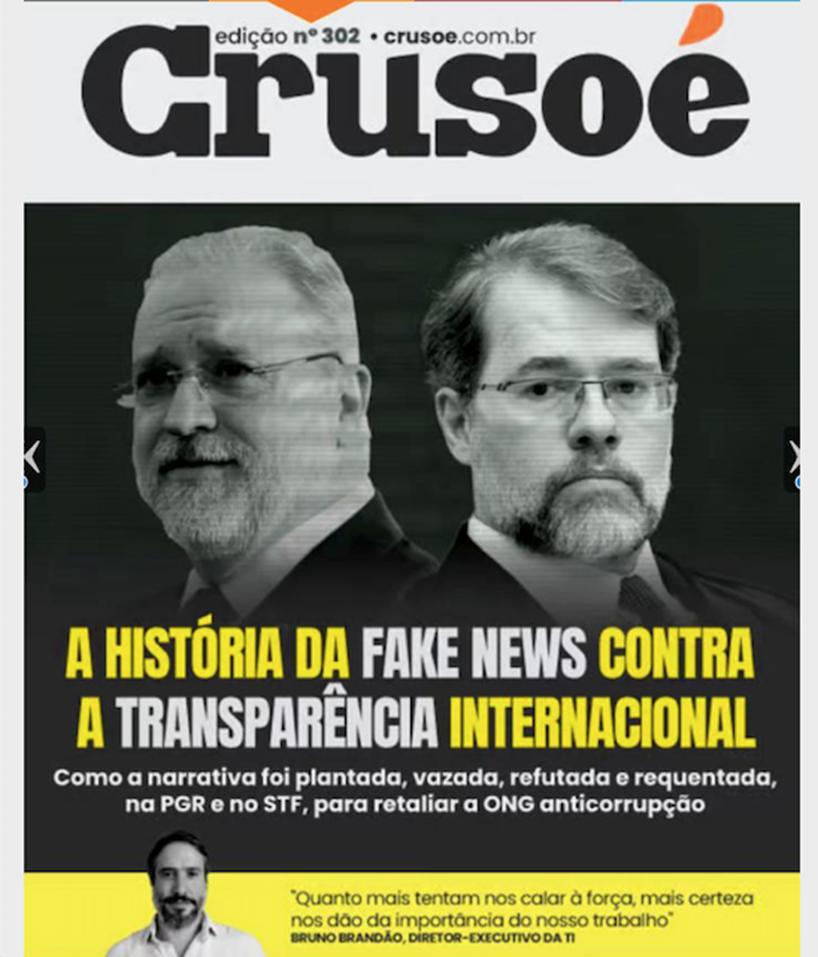Two weeks ago, we published a guest post is from Professor Gregory Michener and Breno Cerqueira, based on an op-ed they had originally published (in Portuguese) in the Folha de São Paulo newspaper, concerning an important decision last by Justice Toffoli of the Brazilian Supreme Court. That decision nullified the evidence that Brazilian prosecutors had acquired from the Odebrecht firm as part of the agreement to settle the corruption charges against that firm; Justice Toffoli’s decision thus called into question ever subsequent corruption conviction that had relied on this evidence. That guest post prompted a response, which we published last week, from a Brazilian lawyer who took issue with many of the assertions that Professor Michener and Mr. Cerqueira had made in their piece. (The author of that post asked to remain anonymous. While GAB does not usually publish anonymous pieces, after considering the reasons for the anonymity request, I decided to grant it in that case.) Today’s guest post is from Professor Michener and Mr. Cerqueira, who offer a rebuttal to last week’s criticisms of their piece.
I realize that some readers may find this a bit excessive, especially since the issues here involve some fine technical points of Brazilian law. But in my view the issues are so important—going to the heart of one of the largest and most important anticorruption investigations in the world over the last decade (the “Car Wash” Operation)—and the legal issues are sufficiently difficult even for attentive outsiders to understand, that a thorough debate about what the most recent decision does and does not mean, that this exchange serves a useful purpose. I am grateful to all the parties involved for being willing to engage in this important conversation..
Without further adieu, here is Professor Michener and Mr. Cerqueira’s rebuttal to the criticism of their post on Justice Toffoli’s ruling:
The Odebrecht case spanned twelve countries and involved nearly a billion dollars of elaborate payments made from Odebrecht’s in-house bribery department to corrupt governments on three continents. (Perhaps the best way to understand the case is through the documents posted with the US Department of Justice press release about the settlement of the US Foreign Corrupt Practices Act charges in the case.)
The primary objective of our editorial was to discuss the deficient transparency of corruption cases in Brazil, an understudied aspect of corruption that should be of concern to citizens everywhere. Transparency of corruption cases can assign responsibility and promote accountability, deter graft among businesses and public officials, identify institutional weaknesses that need to be fixed and, perhaps most importantly, provide an important historical archive to keep the record straight – not only of crimes committed but of retributive government efforts in favor of the public interest. In the case of Brazil, we argued, a lack of transparency worked in favor of corruption and impunity, which is currently on the upswing.
We find it ironic that the critic of our article, a Brazilian lawyer (“Anonymous”), would ask for anonymity if his or her critiques were squarely fair handed and factual. (As an aside, anonymity is illegal as per the Brazilian Constitution (Article 5 IV – “the expression of thought is free, and anonymity is forbidden”). As a leading anticorruption specialist and friend commented on the Anonymous post a day after it appeared, it attempts to “muddy the waters.” Rather than “setting the record straight” it simply creates doubt where little should exist. The following explains why: Continue reading →
